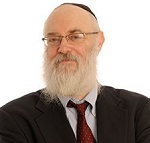Even after the election results are finalized and the new President inaugurated, one thing will remain unresolved – the deep divide within the nation that the campaigns for the presidency confirmed. It was not Biden v. Trump, or Democrat v. Republican; it was Socialist v. Fascist, Anarchist v. Racist, Stalin v. Hitler – and worse. The names shouted by all sides both revealed and inflicted a deep social wound in our nation that will be hard to mend – when 80 million people stand on one side of the divide and 74 million on the other.
In the face of that divide, merely calling for “healing” and “unity” and “civility” will not bring us together. But practical steps can be taken, based upon the methods of a field called conflict resolution, which uses approaches that are proven to help bridge divides, at both the personal and group levels. These methods include mediation and dialogue, which give support to the natural human process of social healing. Those who would “bring us together” can learn several important lessons from the ideas and practices of good mediators and facilitators.
For the rest of this essay, click here

